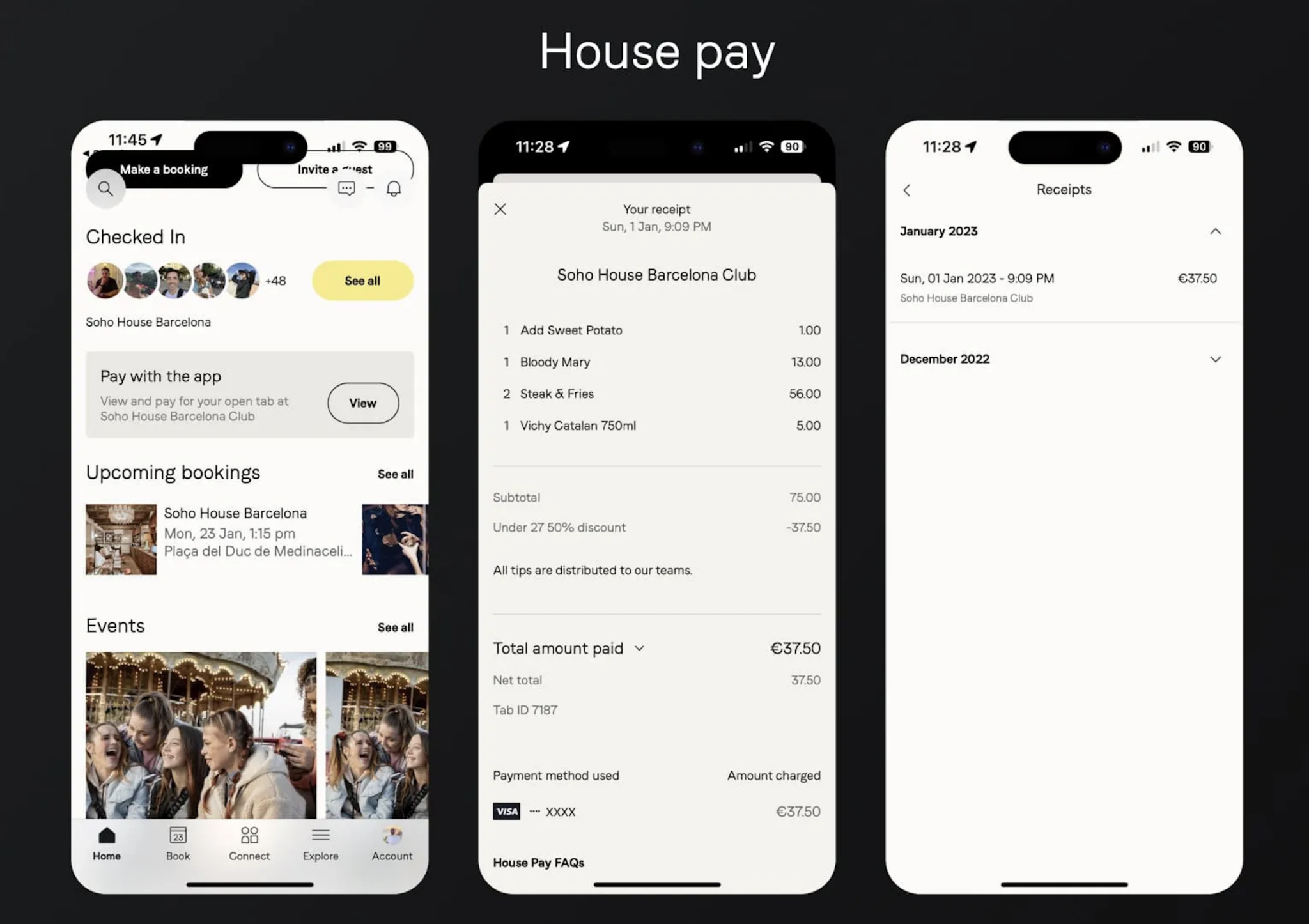Google Reverts to ’10 Blue Links’ for Travel Search Results in European Test
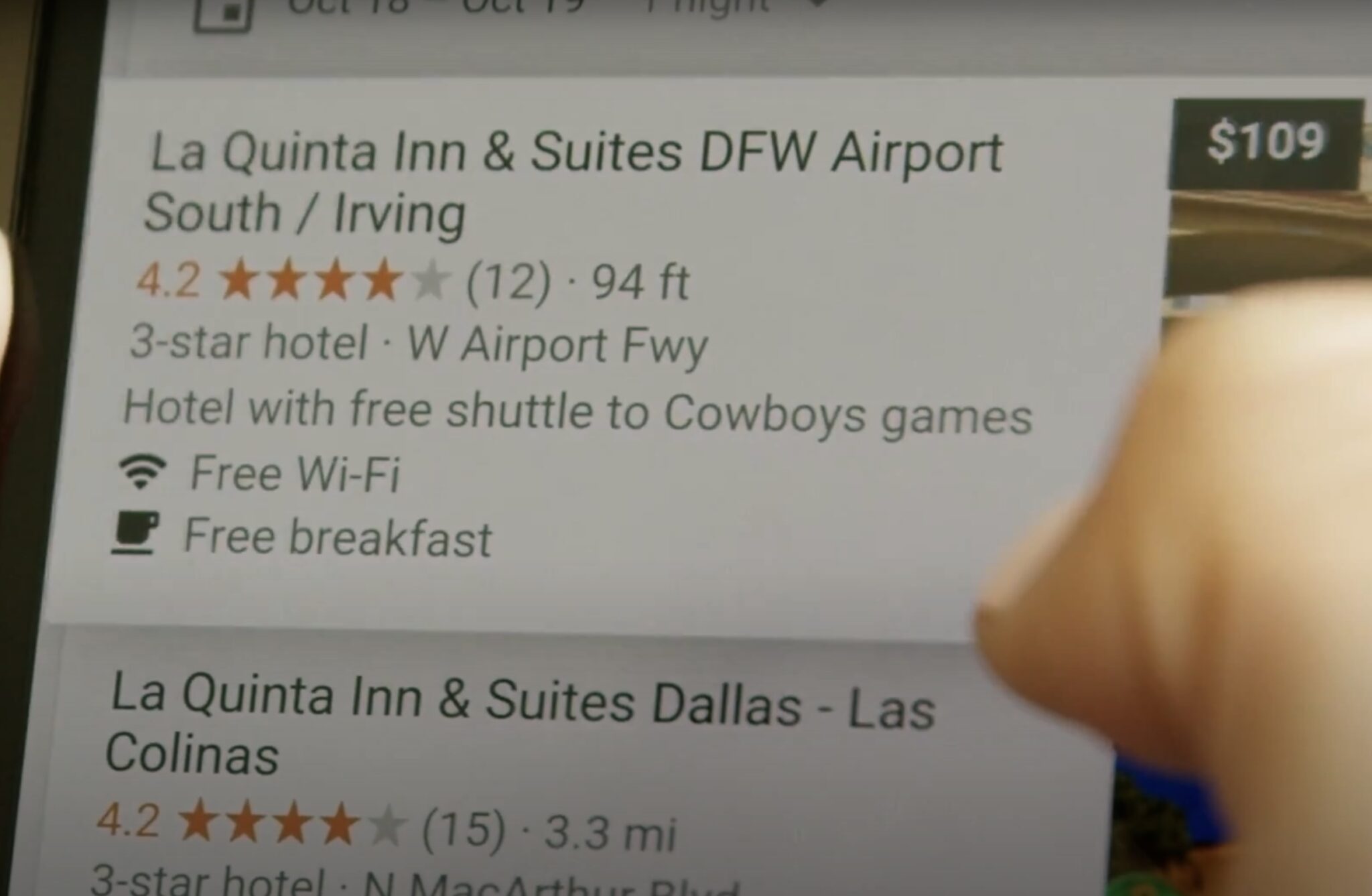
Skift Take
Back to the future? Google announced Tuesday a “short test” in Germany, Belgium, and Estonia where it provides pared-down travel search results in the form of “10 blue links,” which Google was known for in its early years.
There are no links to Google Travel in the test results.
Some will view the test, featuring bare bones search results, as gamesmanship as Google spars with the European Commission — and segments of the travel industry — over its compliance with the Digital Markets Act.
Before we get into the back and forth between Google and the European Commission, here are two screenshots of what a Google search for “Berlin hotels December 4-5” looks like from France and much of the rest of Europe, where the new Google test is not underway.
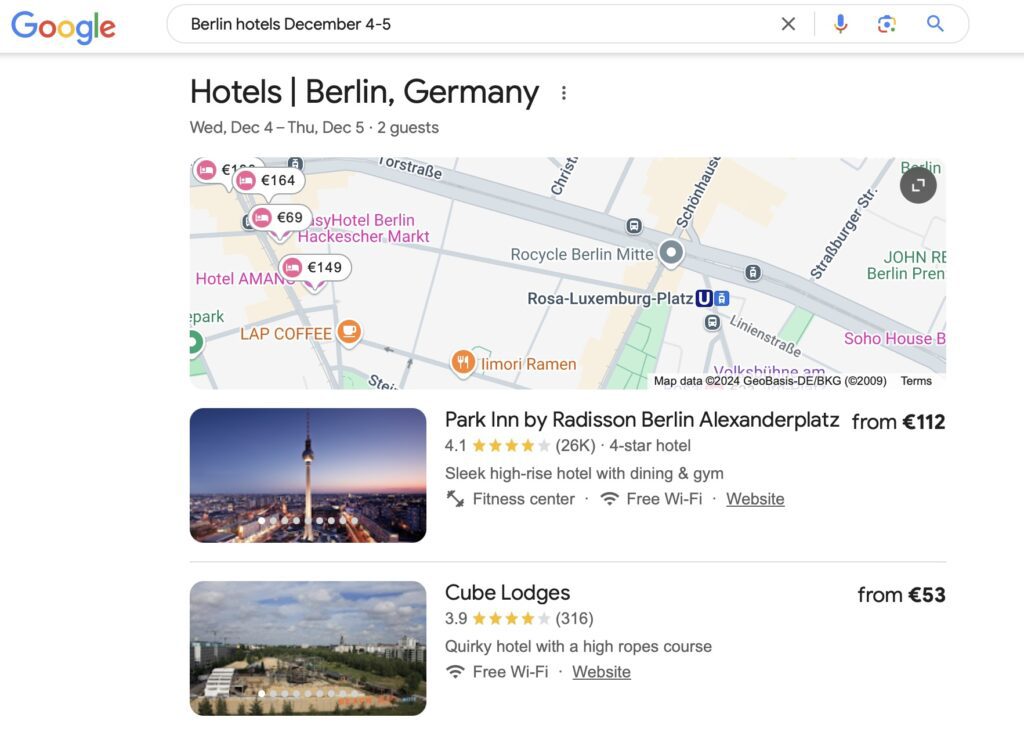
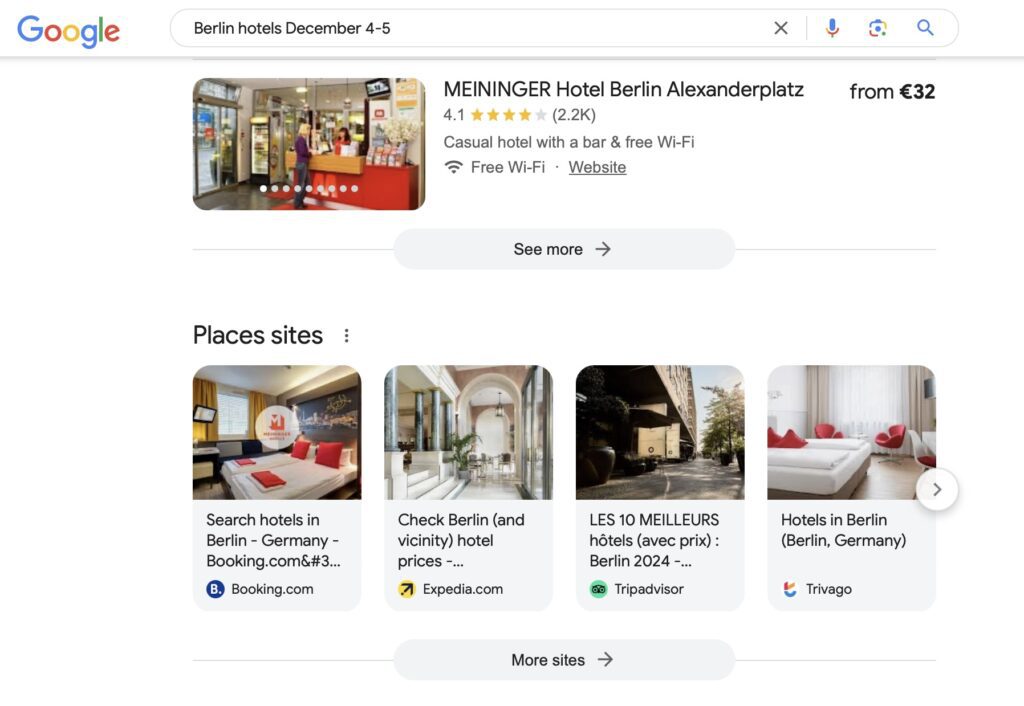
These screenshots feature a prominent Google Map on top with hotel rates.
Users who click on those hotel rates navigate to Google Travel in the right rail on desktop, where Google makes money from advertising clicks. Clicking on any of the three hotels listed under the map likewise takes users to Google Travel.
Critics have long argued that given Google’s monopoly power in search, and the prominence of links to Google Travel give it an unfair advantage over competitors.
In March, to comply with the DMA, Google changed its results to add dedicated units with hotel photos and links to online travel companies such as Booking.com, Expedia.com, Tripadvisor and Trivago. They’re on the bottom of the second screenshot.
Here’s a third screenshot that shows results as part of the test in Germany, Belgium and Estonia.
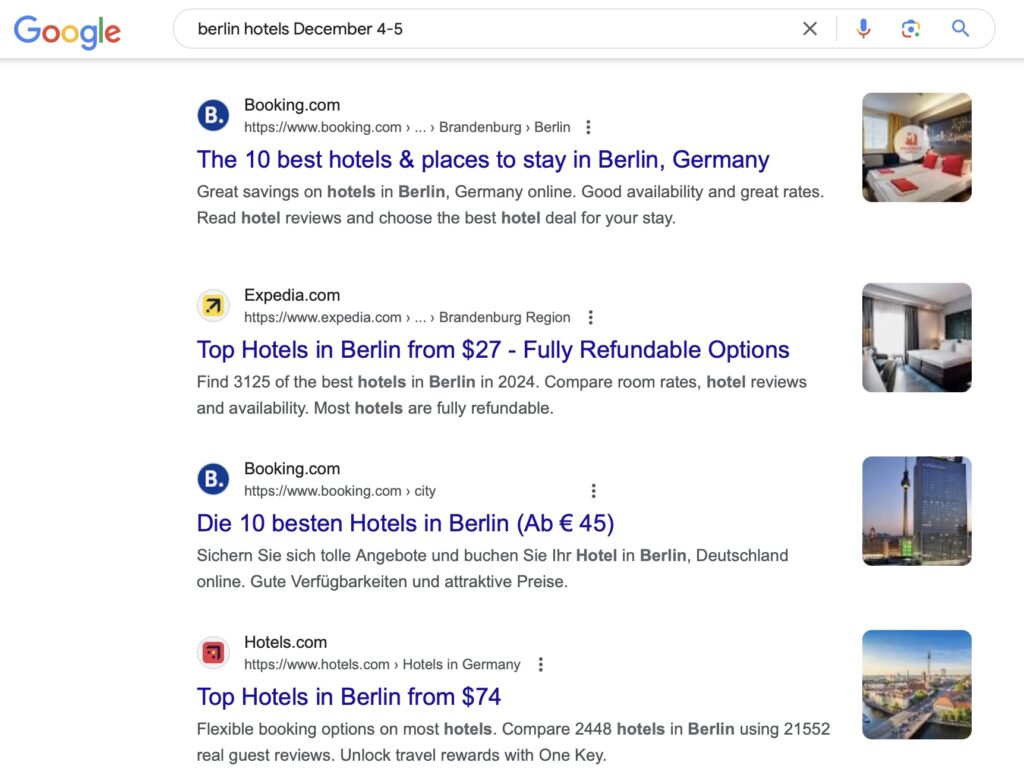
Below the usual sponsored results, which aren’t shown, are simple blue links to online travel agencies with hotel rates and a photo. There’s no Google Map or other entry to the Google Travel advertising business.
There are 10 blue links of organic search results per page on desktop.
“We’re very reluctant to take this step, as removing helpful features does not benefit consumers or businesses in Europe,” Oliver Bethell, Google’s director, legal, wrote in a blog post about the test. “That’s why we have committed so much product and engineering time to constructive discussion informed by objective data.”
Bethell stated online travel agencies the changes Google implemented in March have not gone far enough to wipe out Google’s competitive advantages. At the same time, airlines and hotels have said they lost traffic because of the new units dedicated to online travel agencies and metasearch companies.
The European Commission is investigating Google’s compliance — or lack thereof — with the DMA, a probe that is supposed to be completed by March 2025. Google would have to comply with the findings or face fines from the European Commission.
Google’s Proposals
As an alternative to the March changes, Google proposed to modify results by:
- Showing units for online travel intermediaries and supplier sites for flights, hotels and restaurants.
- Adding formats for online travel companies and suppliers that show prices and photos. (The current units for online travel companies don’t show prices.)
- Providing new units for travel comparison websites.
“We think the latest proposal is the right way to balance the difficult trade-offs that the DMA involves,” Bethell wrote. “We still hope to be able to reach a solution that complies with the law and continues to provide European users and businesses with access to helpful technology.”
A spokesperson for Germany’s HomeToGo declined to comment on Google’s test. Representatives of German companies Trivago and GetYourGuide didn’t immediately respond to requests for comment.


